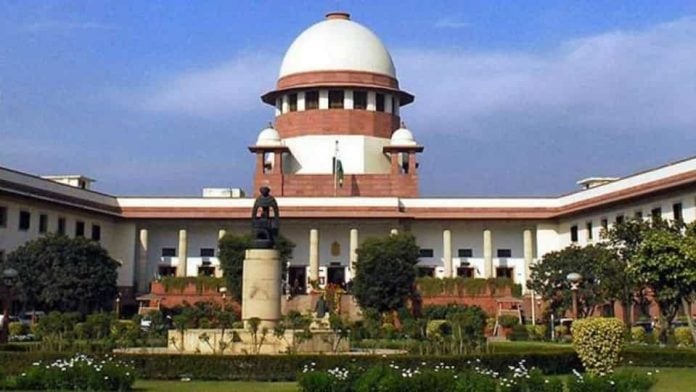New Delhi (ILNS): The Supreme Court today, while hearing a consumer dispute in a hire purchase agreement, held that “the financier continues to remain the owner of a vehicle, covered by a hire purchase agreement, till all the hire installments are paid and the hirer exercises the option to purchase.”
The of Justices D. Y. Chandrachud and Indira Banerjee was hearing an appeal filed by Magma Fincorp Ltd, the financier, against the order of the National Commission which had directed the financier to pay Rs 2,23,335 to the complainant, along with interest at 10 percent per annum and Rs 10,000 for taking re possession of the hired vehicle on the failure of the complainant to pay the full installments.
The question raised by the Financier in the appeal was whether the Financier is the real owner of the vehicle which is the subject of a hire purchase agreement, and if so, whether there can be any impediment to the Financier taking repossession of the vehicle when the hirer does not make payment of instalments in terms of the hire purchase agreement.
Another question raised was on whether service of proper notice on the hirer is necessary for repossession of a vehicle which is the subject of a hire purchase agreement, and if so, what is the consequence of non service of proper notice.
The bench holding the Financier as the owner of the vehicle agreed that it could keep the vehicle possession until all the hire instalments were paid.
On the question whether the service of proper notice on the hirer would be necessary for repossession of a vehicle, which is the subject matter of a Hire Purchase Agreement, the bench said that it would depend on the terms and conditions of the Hire Purchase Agreement, some of which may stand modified by the course of conduct of the parties. If the hire purchase agreement provides for notice on the hirer before repossession, such notice would be mandatory. Notice may also be necessary, if a requirement to give notice is implicit in the agreement from the course of conduct of the parties.
If the hirer commits breaches of the conditions of a hire purchase agreement which expressly provides for immediate repossession of a vehicle without further notice to the hirer, in case of default in payment of hire charges and/or hire instalments repossession would not be vitiated for want of notice.
In this case, however, the bench observed that a duty to give notice to the Complainant before re-possession, was implicit in the Hire Purchase Agreement. The Hire Purchase Agreement was a stereotype agreement in a standard form, prepared by the Financier. The Financier who set down the terms and conditions of the hire purchase, construed the hire purchase agreement to contain an implied term for service of notice and accordingly despatched a notice, but did not address it to the correct address of the Complainant as given in the hire purchase agreement.
The bench observed that in a case where the requirement to serve notice before repossession is implicit in the hire purchase agreement, non service of proper notice would tantamount to deficiency of service for breach of the hire purchase agreement giving rise to a claim in damages.
Read Also: Plea in Supreme Court against 100-allottee clause in IBC for home buyers
The Complainant consumer would be entitled to compensatory damages, based on an assessment of the loss caused to the complainant by reason of the omission to give notice. Where there is no evidence of any loss to the hirer by reason of omission to give notice, nominal damages may be awarded.
In the instant case, however the bench observed that “there is no evidence of any loss suffered by the complainant by reason of non-receipt of notice. Admittedly, several instalments, remained unpaid. After repossession the complainant contacted the Financier and was informed of the reasons for the repossession. He only made an offer to pay outstanding instalments and gave an assurance to pay future instalments in time. If the Financier was not agreeable to accept the offer, the Financier was within its rights under the hire purchase agreement. This is not a case where payment had been tendered by the hirer but not accepted by the Financier/lender. The Complainant had not tendered payment.”
Allowing the appeal, the bench however directed the financier to pay a composite sum of Rs 15,000 to the Complainant towards damages for ‘deficiency’ in service and costs for omission to give the Complainant a proper notice before taking repossession of the vehicle.
Read the judgment here;
41257_2018_34_1502_24245_Judgement_01-Oct-2020-ILNS


